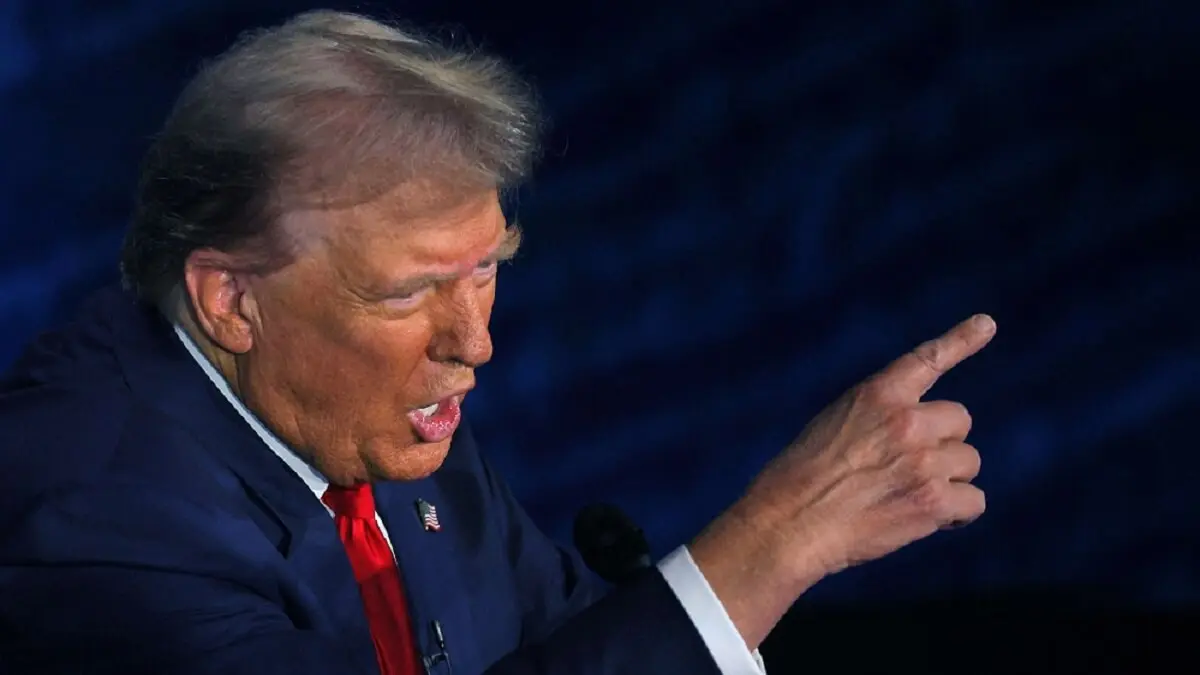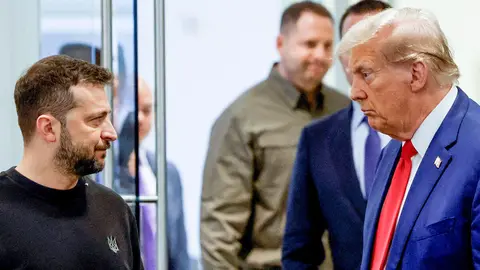World disorder

The presidential elections in the United States, the constitution of the new European Commission and the precarious ceasefire in Lebanon are just some of the events that took place in the penultimate month of the year. To these must be added Biden's authorisation for Ukraine to use US-made missiles on targets deep inside Russia.
But it must be admitted that another bomb went off ‘quietly’, albeit with great power. A Gallup poll shows that, for the first time since the conflict began, a majority of Ukrainians want to negotiate with Russia and end the war. Within that group, a large share of respondents, 52% support ceding territory to Russia with 38% opposed and 10% unopinionated. In contrast, in 2022, 73% of the population would prefer to fight until victory, without, of course, defining what victory is. Obviously, change is a fact.
It is paradoxical that the United States, in a period of transition between administrations, both makes peace and declares war, two presidents leading the country in different directions, one representing the past and the present, the other the future.
While the outgoing president attends international summits and negotiates a ceasefire in Lebanon, the president-elect conducts his own foreign policy from his Florida estate. In the middle of the last week of November, Trump announced that on his first day in office, he would impose tariffs on Canada and Mexico, as well as rival China.
The next day, President Biden announced a ceasefire agreement that would end more than a year of fighting between Israel and Hezbollah. Meanwhile, foreign leaders are weighing up whether it makes sense to continue dealing with the outgoing leader or prepare for the reality of his successor.
The allusion to tariff threats may simply be an initial negotiating position in which Trump seeks to pressure trading partners to act against the flow of migrants and drug trafficking, but it highlights a substantial geo-economic shift since prior to Trump's arrival, both major US parties had torn down trade barriers.
In choosing Canada, Mexico and China, Trump knew that these were America's top three trading partners, signalling the choice of a new period of friction that contrasts with Biden's efforts over the past four years to achieve a better relationship. This is a textbook definition of ‘economic governance’: the use of economic means to achieve foreign policy objectives. The announcement has altered economic calculations across the hemisphere and across the ocean, forcing foreign leaders to choose to negotiate or retaliate.
At the same time that Trump was giving an account of his economic mood in pre-inauguration international relations, he authorised his financial backer Elon Musk to initiate contacts with Tehran, bypassing the current administration involved in the standoff between the Islamic republic and Israel. Trump has therefore promised to end Russia's war in Ukraine before the inauguration, and there are rumours of a telephone conversation with Russian President Vladimir V. Putin, although the Kremlin denied this.
Biden also seems willing to wait until the last moment of his term to negotiate a ceasefire between Israel and Hamas in Gaza. If that works, he risks another difficult mission, namely reaching the long-overdue agreement that would lead to the normalisation of relations between Saudi Arabia and Israel, with a view to normalising the region. It would not be surprising if Israeli Prime Minister Netanyahu believes that with Trump the agreement would be more advantageous for him.
The new administration's National Security team seems to be oriented towards the view that China should be the main focus of US attention, that focusing too much on Ukraine would be a distraction, and that some kind of ‘settlement’ would be acceptable if it strengthened Washington's position vis-à-vis Beijing. The outlook is shaped in the sense that the US will shift to a defensive balancing posture in Europe to concentrate the main effort in the Indo-Pacific.
Meanwhile, on 27 November, the European Parliament's traditional power bloc of the European People's Party (EPP), Socialists (S&D) and Liberals (Renew) reached a coalition agreement, calling itself the ‘Platform for Cooperation’, to form the second European Commission under the chairmanship of Ursula von der Leyen.
It does not take a prophet to deduce that the new Commission has a multifaceted problem, starting with its states. In Germany, the coalition government has collapsed, and the country's politicians will spend the coming months busy with early elections scheduled for 23 February and the process of forming the necessary coalition that will follow.
In France, President Emmanuel Macron lost his parliamentary majority this summer, leaving him politically weakened. Spain continues its process of institutional weakening that prevents it from adopting any future project, if any.
Meanwhile, the EU's relationship with the UK, Europe's most formidable military power, remains strained, even as both sides make sincere efforts to improve cooperation.
If the US approach is to become ‘big’ again, even to the detriment of the economic security of its allies, it would be a severe breach of the rules-based International Order, which the EU considers an important part of its being and the basis of the interdependence-oriented neoliberal economic model and the social contract that underpins it.
There are a number of geopolitical unknowns in the balance: will American ‘exceptionalism’ be buried, will the rules-based world order continue, will the EU become a strategic actor or will its states become one, ... the list is open.



